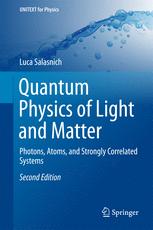

Most ebook files are in PDF format, so you can easily read them using various software such as Foxit Reader or directly on the Google Chrome browser.
Some ebook files are released by publishers in other formats such as .awz, .mobi, .epub, .fb2, etc. You may need to install specific software to read these formats on mobile/PC, such as Calibre.
Please read the tutorial at this link: https://ebookbell.com/faq
We offer FREE conversion to the popular formats you request; however, this may take some time. Therefore, right after payment, please email us, and we will try to provide the service as quickly as possible.
For some exceptional file formats or broken links (if any), please refrain from opening any disputes. Instead, email us first, and we will try to assist within a maximum of 6 hours.
EbookBell Team

0.0
0 reviewsThis compact but exhaustive textbook, now in its significantly revised and expanded second edition, provides an essential introduction to the field quantization of light and matter with applications to atomic physics and strongly correlated systems. Following an initial review of the origins of special relativity and quantum mechanics, individual chapters are devoted to the second quantization of the electromagnetic field and the consequences of light field quantization for the description of electromagnetic transitions. The spin of the electron is then analyzed, with particular attention to its derivation from the Dirac equation. Subsequent topics include the effects of external electric and magnetic fields on the atomic spectra and the properties of systems composed of many interacting identical particles. The book also provides a detailed explanation of the second quantization of the non-relativistic matter field, i.e., the Schrödinger field, which offers a powerful tool for the investigation of many-body problems, and of atomic quantum optics and entanglement. Finally, two new chapters introduce the finite-temperature functional integration of bosonic and fermionic fields for the study of macroscopic quantum phenomena: superfluidity and superconductivity. Several solved problems are included at the end of each chapter, helping readers put into practice all that they have learned.